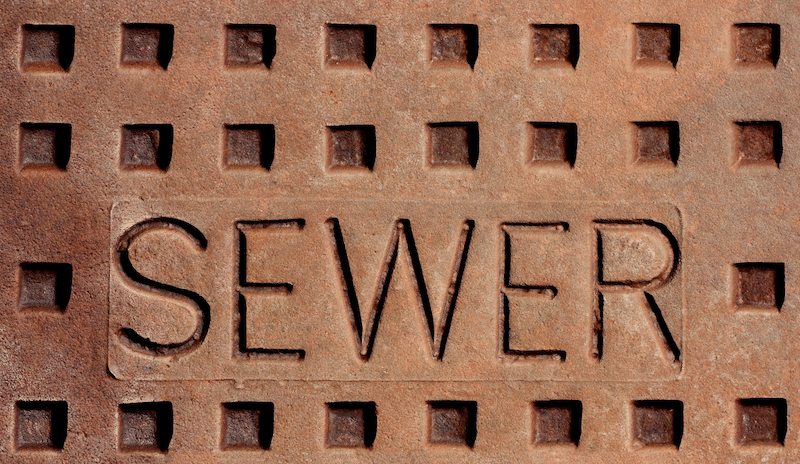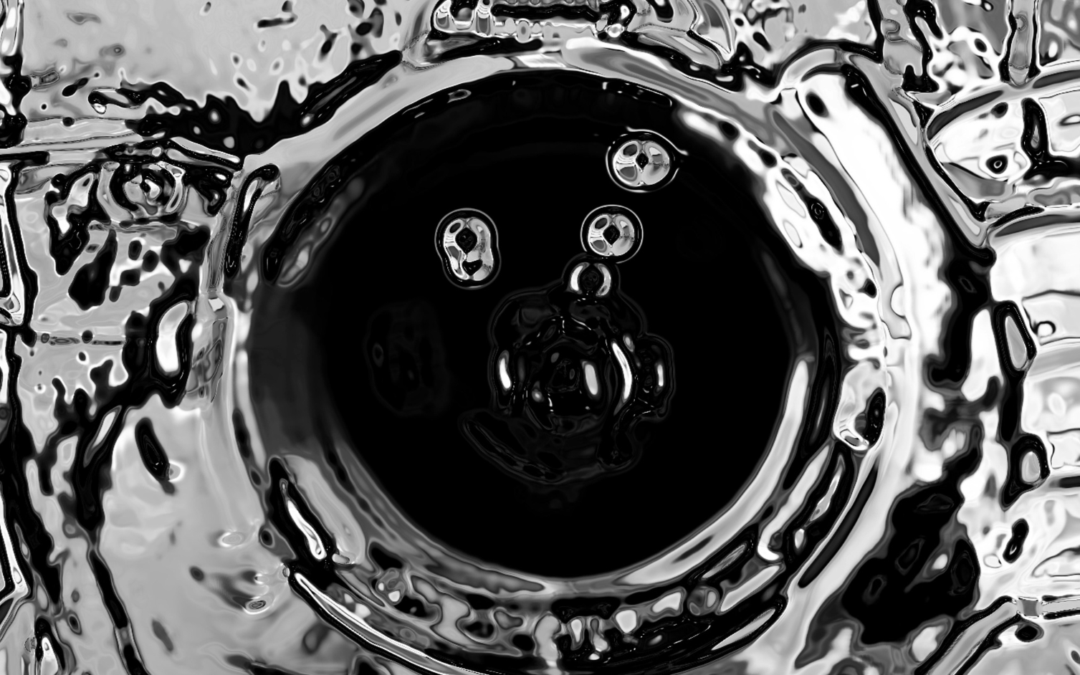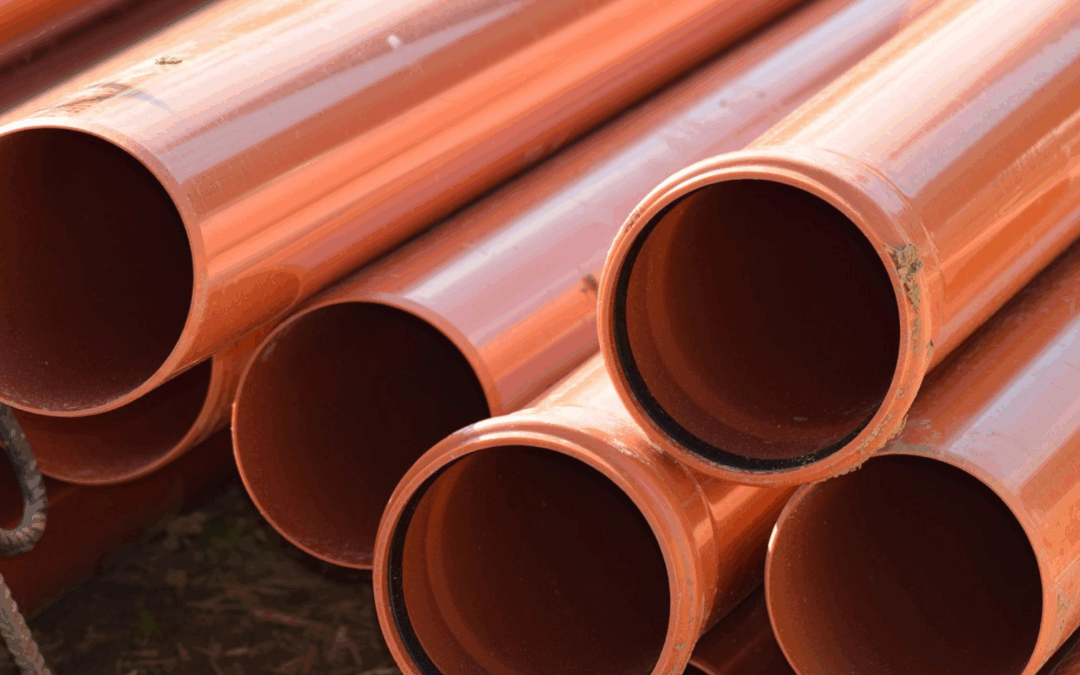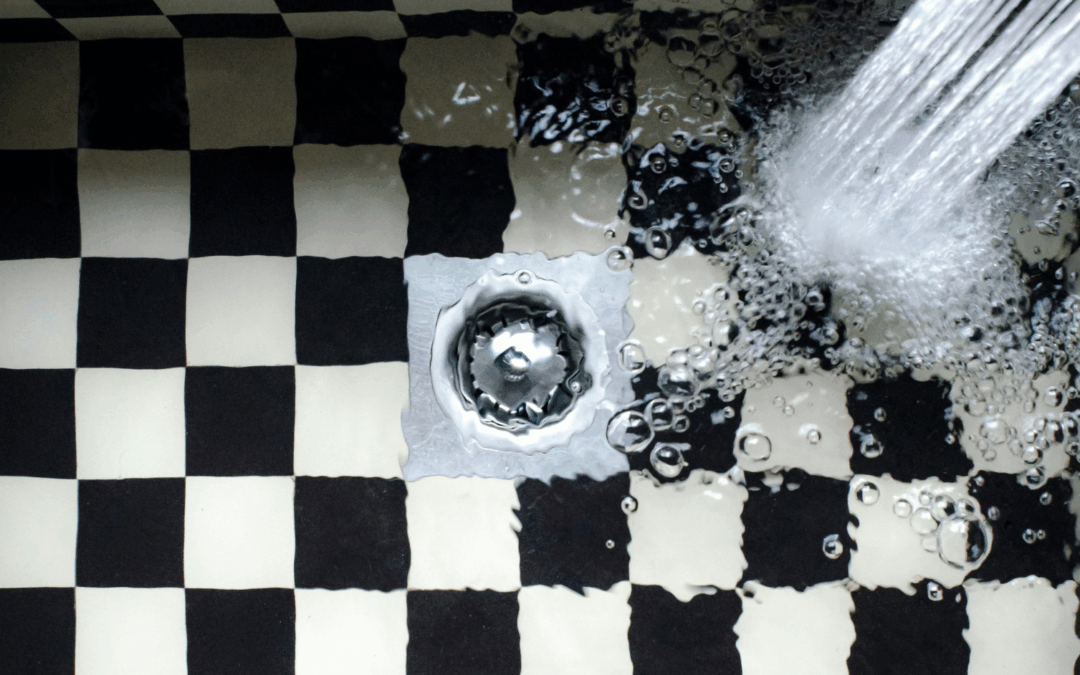Sewer pipes are an essential part of a home’s plumbing because they carry wastewater away from the house and deposit it into the sewer system. In this article, we will discuss what sewer pipes are, explore the different types of sewer pipes, and explain how to fix common sewer pipe problems.
What Are Sewer Pipes?
Before discussing sewer pipes, it is essential to explain what a sewage system is. Sewage is the used water from toilets, baths, sinks, and washing machines that contains human waste. The sewer system is a network of pipes that carries this sewage to a treatment plant, where it is cleaned before being released back into the environment.
As stated above, a sewer or sewage pipe is one used to transport wastewater or sewage from the house, office, or any building. The sewer system comprises two types of sewer pipes: the main sewer pipe and the lateral sewer pipe. The main sewer pipe is the large pipe that carries wastewater from your home or business to the sewer system. The lateral sewer pipe is the smaller pipe that connects your property to the main sewer pipe. Lateral sewer pipes are usually made of clay, concrete, or plastic and are located underground.
Schedule Service Online
Get a free estimate so you know what you're signing up for
"*" indicates required fields
For Emergency Services Call: 410-255-9300
In the piping network, sewer pipes behave differently in different corrosion environments. Most times, most systems make use of cast iron pipes. This is because sewer pipes are commonly used in pressurized sewer systems, and the material must be able to withstand the high pressures and temperatures that come with this type of system. Aside from this, sewer pipes are also used for stormwater drainage, where the pipe material must be able to resist abrasion from debris.
The Different Types Of Sewer Pipes
Different types of sewer pipes are available in the market, and each pipe has a unique function. Some of them include:
Clay Sewer Pipes
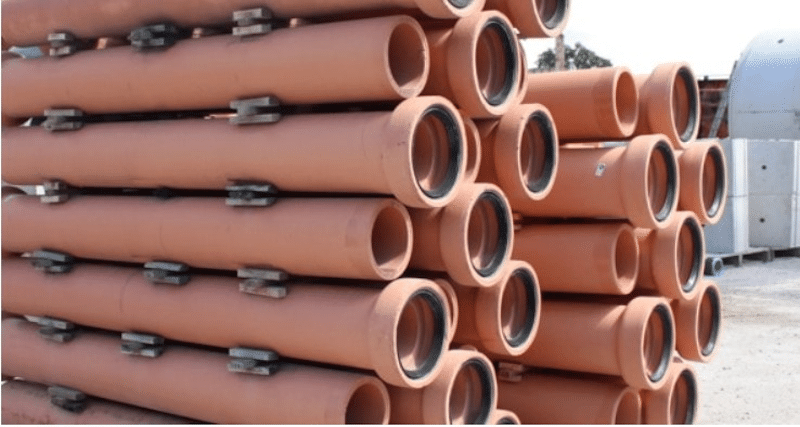
Clay sewer pipes are the oldest kinds of pipes used in sewer systems. Clay sewer pipes are made of natural materials such as clay and shale. These types of sewer pipes are solid and durable, but they are also susceptible to root intrusion. Clay sewer pipes can last for decades but must be regularly inspected for cracks or breaks.
Clay sewer pipes are also believed to be inert, meaning that they can’t catch fire and they don’t produce toxic fumes. However, clay sewer pipes can be very fragile, and even a small crack can cause the pipe to break.
Cast Iron Sewer Pipe
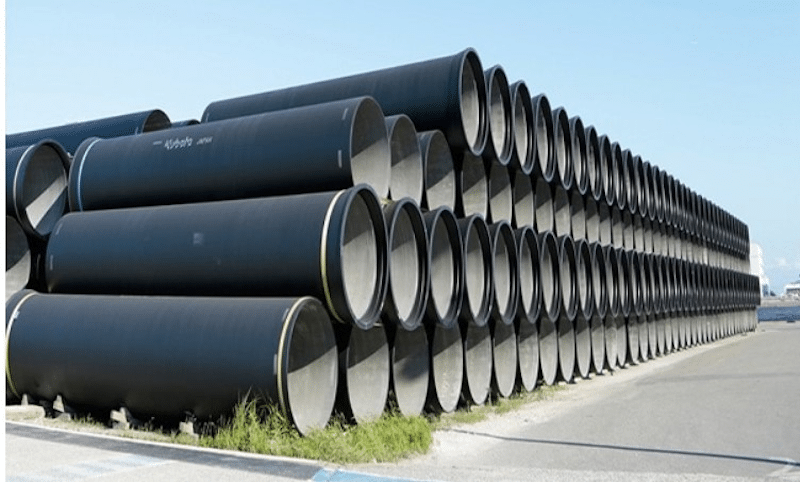
The Cast Iron sewer pipe is one of the most commonly used types of sewer pipes. Cast iron sewer pipes are made of materials such as pig iron, limestone, and dolomite.
Generally, Cast Iron sewer pipes are used in older buildings where the sewer system is not pressurized and can last for decades. According to this study, Cast Iron sewer pipes mostly have a life expectancy of 40 to 50 years.
However, Cast Iron sewer pipes are heavy and difficult to install. They are also vulnerable to corrosion from acidic gases and moisture condensation.
Orangeburg Sewer Pipe
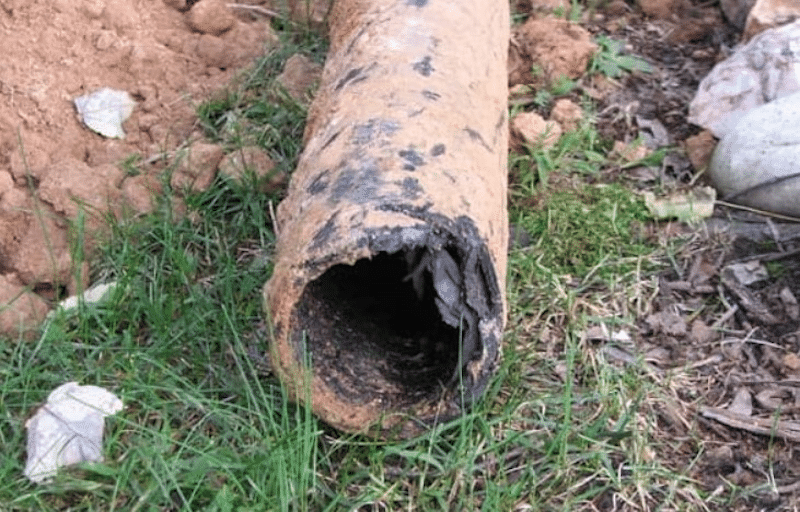
The Orangeburg pipe is a bituminized pipe made of wood layers and pulp fibers bonded and compressed by an adhesive water-resistant and liquefied coal tar pitch. Orangeburg sewer pipes are made of a material called cellulose.
The Orangeburg sewer pipe, also referred to as fiber conduit pipe, was once a popular type of sewer pipe because it was durable. People began using them in the 1860s, and they were used extensively in the United States until the 1970s.
However, Orangeburg pipes are no longer used because they are susceptible to root intrusion and deteriorate quickly. Also, the Orangeburg sewer pipe is now considered obsolete because they contain asbestos, and manufacturers no longer produce them.
PVC And ABS Sewer Pipe
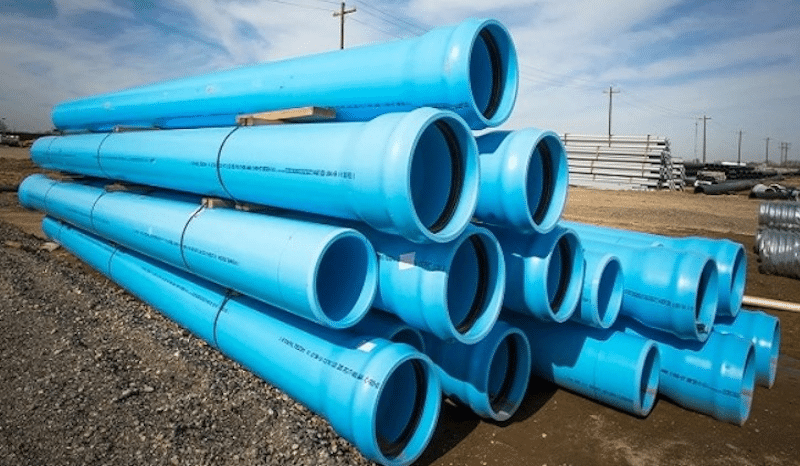
PVC sewer pipes, otherwise known as polyvinyl chloride, are commonly used in sewer systems. PVC sewer pipes are strong, durable, and resistant to corrosion. PVC sewer pipes can be lightweight, making them easy to install. Asides from PVC pipes, ABS is also commonly used in sewer systems. ABS sewer pipes are made of acrylonitrile butadiene styrene, which is a form of synthetic rubber.
These sewer pipes usually come in white and grey colors and are about 8 feet long, with a diameter ranging from 1/2 to 4 inches. PVC sewer pipes have a smooth interior and exterior, making them fairly resistant to tree roots and other harmful materials. Also, PVC pipes are inexpensive and easy to use.
Concrete Pipes
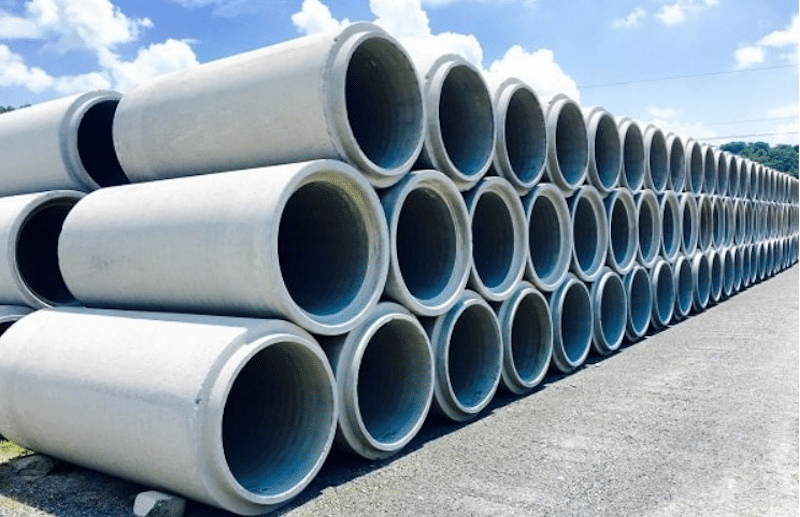
Concrete sewer pipes are made of Portland cement, sand, and water. Concrete sewer pipes can be durable, but they are prone to corrosion. Concrete pipes became famous for sewer lines in the early 1900s.
There are three methods of concrete sewer pipe designs: the Standard installation direct design, the Standard installation indirect design, and the Marston-Spangler Theory of Loads and Supporting Strength used for the structural design of rigid pipe sewage sanitary systems.
Concrete sewer pipes are difficult to install but can last several years. They are also not as vulnerable to root intrusion as other types of sewer pipes. However, concrete sewer pipes can be damaged by chemicals and water pressure.
Galvanized Pipes
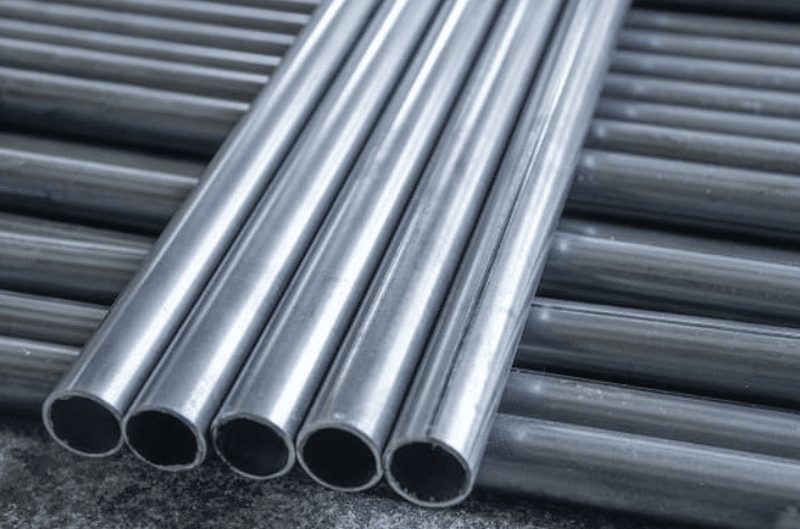
Galvanized sewer pipes. are made of iron and coated with a layer of zinc. Galvanized sewer pipes are designed to resist rust because they are dipped in molten zinc, which increases their strength and protects the sewer pipe from corrosion. Galvanized sewer pipes can last for over 20 years.
Copper Pipes
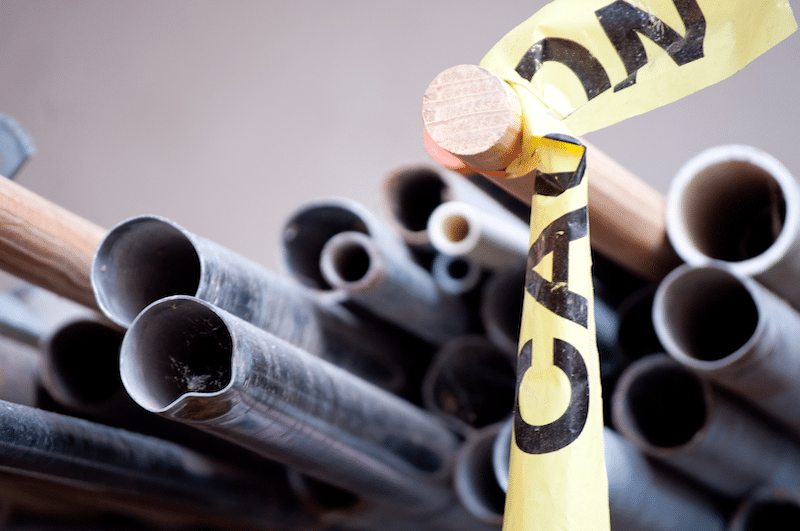
Copper sewer pipes are made of metal that is easy to work with and heat-resistant. These sewer pipes are often used when you want to expand the pipe walls or when you need to solder the sewer pipe. Copper sewer pipes can last for over 20 years but are expensive.
Common Types of Sewer Pipes Problems
Sewer pipes can have different types of problems. Some sewer pipe problems are caused by tree roots, while others are caused by corrosion and leaks. The common issues a sewer pipe faces include:
Freezing Temperatures: If you are in colder climates, your sewer pipes risk freezing. When water freezes, it expands and can crack or break your sewer pipe. To prevent this from happening, you should insulate your sewer pipes.
Corrosion: Corrosion is the most common type of sewer pipe problem. Corrosion is caused by a reaction between the sewer pipe and the soil around it. This reaction can cause the sewer pipe to break down and crumble.
Leaking Pipes: Leaking sewer pipes can be caused by corrosion, cracks, or holes in the sewer pipe. Leaks can also be caused by joint problems or root intrusion. It is important to notify proper authorities as soon as possible because sewer leaks can lead to water contamination, sewer gas leaks and flooding.
Tree Roots: Tree roots can grow into sewer pipes and cause blockages. Tree roots can also damage sewer pipes by breaking them or causing them to collapse. To prevent tree roots from damaging your sewer pipe, you should have a root barrier installed around your sewer pipe.
Blockage: Blockages in sewer pipes can be caused by tree roots, grease, oil, or foreign objects. Blockages can also be caused by corrosion or leaks. If the blockage is not removed, it can cause the sewer pipe to burst.
How To Prevent Sewer Pipe Problems
Sewer problems can happen to anyone, but there are ways to prevent sewer pipe problems. To avoid sewer pipe problems, you should:
Sewer Line Inspections
Regular inspections for sewer pipe problems can help you catch them before they become significant. To inspect your sewer pipes, you should:
– Look for cracks, holes, or leaks in the sewer pipe.
– Look for corrosion on the sewer pipe.
– Check for blockages in the sewer pipe.
Clean Your Sewer Pipes
Cleaning your sewer pipes can help prevent sewer pipe problems. To clean your sewer pipes, you should:
– Remove tree roots from around the sewer pipe.
– Remove grease, oil, or foreign objects from the sewer pipe.
– Repair any cracks, holes, or leaks in the sewer pipe.
Insulate Your Sewer Pipes
Insulating your sewer pipes can help prevent freezing. To protect your sewer pipes, you should:
– Wrap the sewer pipe in insulation.
– Cover the sewer pipe with heat tape.
– Place a layer of insulation around the sewer pipe.
Hire A Professional Plumbing Service
Hiring a professional plumbing service can help prevent sewer pipe problems. A proficient plumbing service can:
– Inspect your sewer pipes for problems.
– Clean your sewer pipes.
– Repair any cracks, holes, or leaks in the sewer pipe.
– Insulate your sewer pipes.
Need An Excellent Plumbing Service?
If you are experiencing sewer pipe problems or other plumbing issues, we are here to help! We are plumbing professionals who have provided reliable sewer and plumbing services in Pasadena, Glen Burnie, Linthicum, Annapolis, Baltimore, and surrounding areas since 1985.
We have the latest tools and equipment to handle any repair or maintenance job. And our team of highly skilled and licensed professional plumbers is always available to offer 24/7 emergency service for our wonderful clients. Kindly contact us today for all your plumbing needs and access amazing discounts on our already affordable services.

